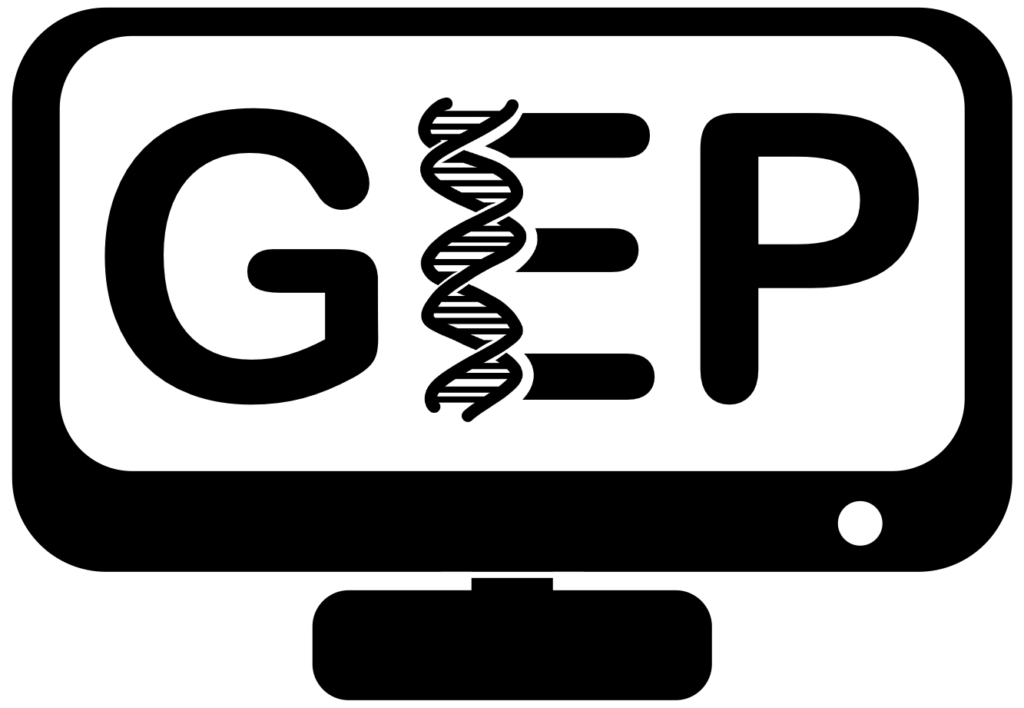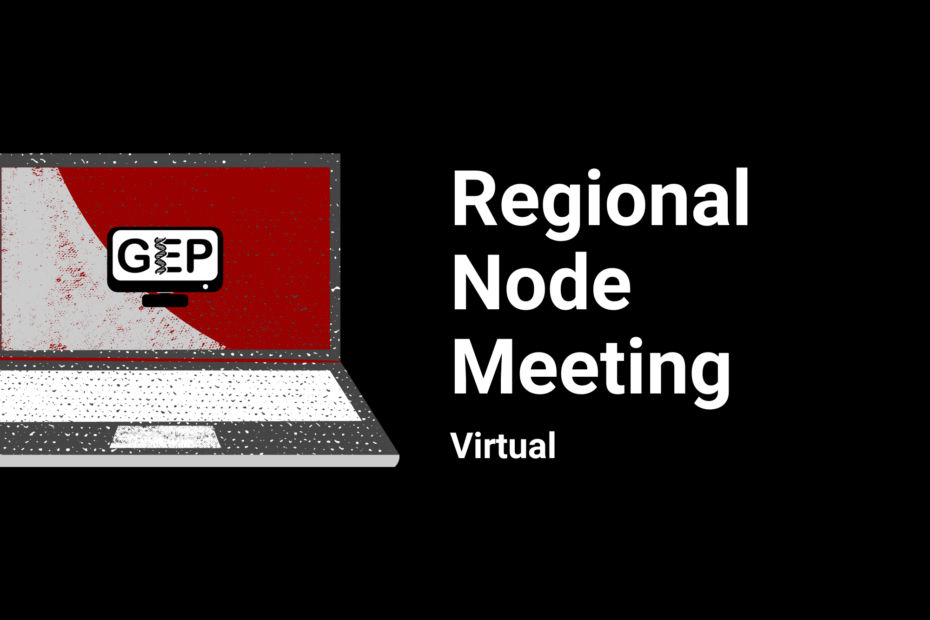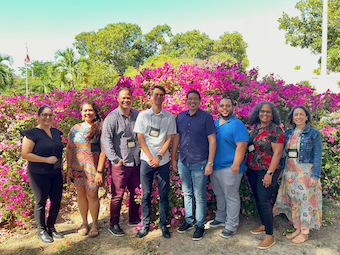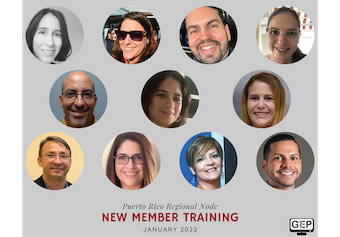Puerto Rico Regional Node Meeting – February 6 & 8, 2024
On the 6th and the 8th of February of 2024, the Puerto Rico Regional Node had a two-day Pathways Project training with Dr. Laura Reed. Node members met through Zoom each day from 4:30 to 6:00 pm AST (2:30 to 4:00 pm CST). Ten (10) GEP faculty and one (1) undergraduate student participated in the three-hour online training.
As part of their GEP onboarding, all Puerto Rico Node members have been trained in the F Element annotation methodology. However, few have worked with other GEP Projects. During the 2023 Faculty Workshop, attending Node members expressed an interest in professional development activities that would help them acquire the knowledge and skills necessary to participate in other GEP research activities. A Pathways Project training was identified as a logical next step towards achieving this goal.
The first session started with an overview of the overarching research questions, implementation ideas and an introduction to the project walkthrough. The second session covered topics such as common annotation mistakes, project claiming and submission protocols, managing report forms, and an overview of the microPublication pipeline. It also offered an opportunity to ask general questions and learn about different Pathways support initiatives. Members of the Puerto Rico Node have a special interest in the Pathways and Puerto Rican Parrot Projects and this training provided valuable knowledge and methodological insights that will serve them well as they venture (with their students) into other GEP annotation projects.
The Puerto Rico Node thanks Pathways Project Leader, Laura Reed, for setting time aside to train the Node members. A special thanks to the Regional Node Director and Co-Director, Melinda Yang and Jenni Kennell for answering many questions, sending helpful follow-up messages, and making sure the Node Leaders had the resources necessary to organize the training. Thanks to Sarah Potts for supporting the event registration, facilitating access to training materials and managing Zoom channel logistics. The planning of the training was a collaborative effort of the Node Leader and Co-Leader, Ángel O Custodio and Sheylda Díaz.
What worked well for your event that might help others plan similar events?
We had an online event during weekdays. This activity didn’t require organizing a venue or having people travel to the meeting location. It served our purpose well. Also, scheduling the training on a date removed from the beginning of the semester promoted faculty participation.
What lessons were learned from challenges in the planning or execution of the event?
Communicate often with headquarters or the Regional Node Directors before sending information to Node members. Also, remember that the Central Office will give the Node support with registrations and surveys.
What would your Node do differently based on your experiences?
Node leaders will write emails to headquarters more often to make sure they are not duplicating efforts doing some transactions that the Central Office can handle with ease. Also, they will set up a local checklist that will help plan and follow-up on certain tasks.



